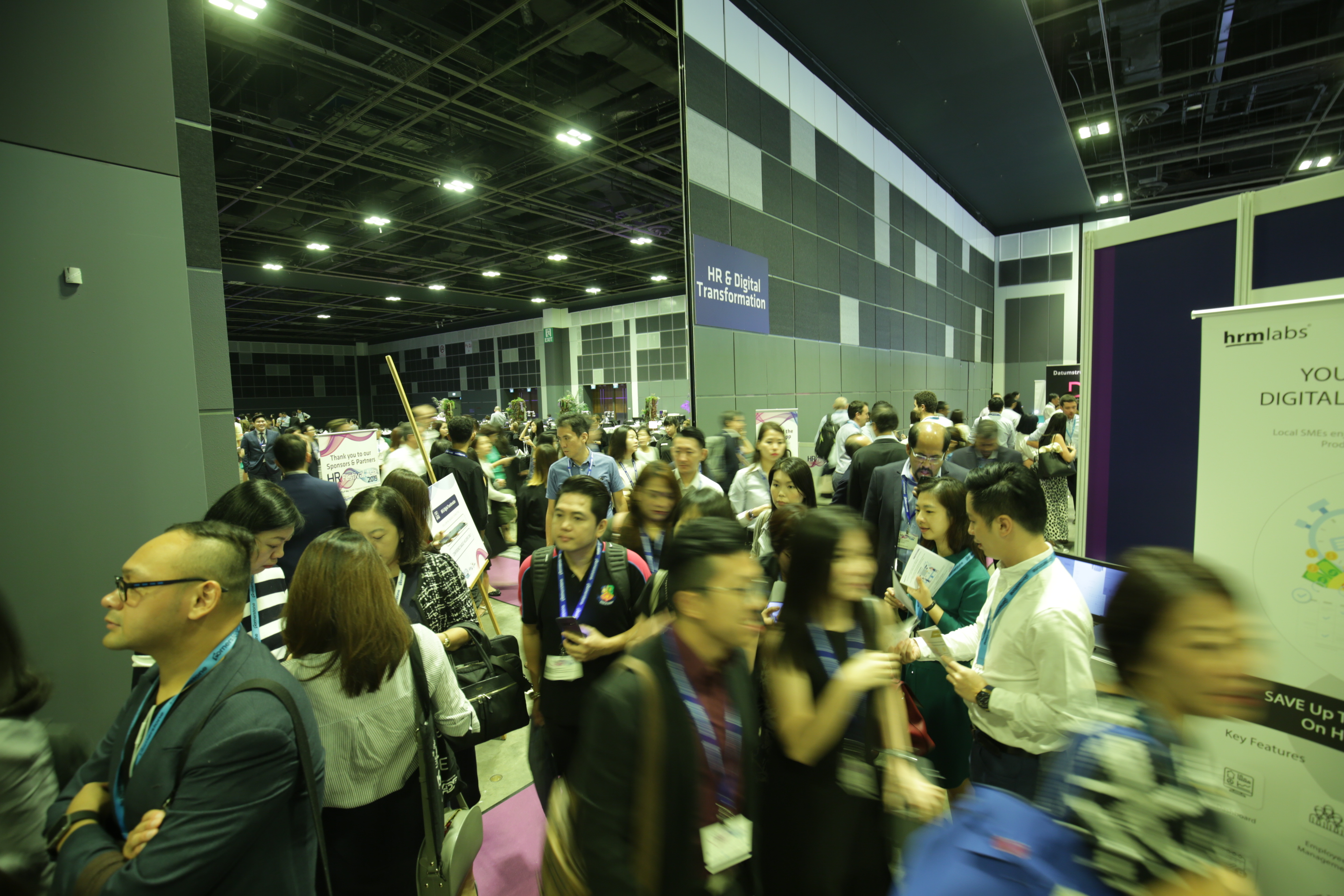Five things we learned on Day One of HR Festival Asia


The first-ever HR Festival Asia, brought to you by the combined experience of HR Technology Conference & Exposition (US) and HR Summit (Asia), takes over the Suntec Singapore Convention & Exhibition Centre on May 8 and 9. With a line-up of more than 100 speakers across six dedicated streams, and an Expo Hall with more than 100 exhibitors, there’s a little something for everyone at the event. Check out our HR Festival Asia tag for more coverage direct from the event. |
Women are adding a vital dimension to the HR Tech industry in Asia
The acclaimed Women in HR Technology made its Asia-Pacific debut at HR Festival Asia today; filling up the HR Tech stage’s agenda for the entire morning.
Top female leaders from top HR tech organisations in the region and globally shared their experiences, and encouraged their peers – regardless of age, gender, or background – to strive towards meaningful connections, be open-minded enough to challenge norms, and always be ready to ask, “how can I help?”.
“We must reach down to pull people up,” Philippa Penfold, moderator of the Climbing the Leadership Ladder panel, said.
Along these lines, panellist Anthea Collier, Managing Director of Randstad Sourceright in Asia-Pacific, shared an example of a recently promoted female colleague who struggled to be heard over a more verbose male colleague. Colllier worked with the global team to investigate solutions.
“We realised [the male colleague] wasn’t going to change. So we changed the reporting lines. And [the female colleague] has flourished.”
There are more unicorns set to rise in Asian HR tech
HR is thriving more than it ever has before, with new companies entering the space every day. Some of the rising stars took the Power Talks stage at HR Festival to pitch their unique ideas to the audience as well as an esteemed panel of judges.
The startups covered a wide spectrum of HR, although unsurprisingly, there was an emphasis on HR technology, such as payroll systems.
Each startup had five minutes to highlight their product’s potential and ability in solving a key HR problem, followed by a rigorous round of questioning from Philippa Penfold, Chairperson of HRM Asia’s Advisory Committee, DN Prasad, former Director and Head of Google People Services Asia-Pacific, and Ian Chong, Associate Director of Innovation and Partnersips at JustCo, and other judges.
The participants weren’t just limited to Singaporean born-and-bred enterprises, such as Gpayroll, but also fledgling international startups such as Haury Solutions from Germany.
Catch the second-round finals tomorrow at the HR Tech stage. mathilda™ by Astarel, Ceipal, and Gpayroll will be battling it out to be crowned the winner.
Digital transformation offers the biggest returns for HR investment
“Digital transformation has nothing to with ‘digital’. It has everything to do with people,” said Melanie Sharpe Nseir, HR Leader at Microsoft Services Asia, during a session at the CxO Symposium about how cultural transformation leads to digital transformation.
Organisations must look to actively change behaviours, in order to ensure successful adoption of HR investments into technology. These include the behaviours of leadership – the principles that guide them, and how they demonstrate those principles to their teams.
Indeed, at Microsoft itself, the ascension of Satya Nadella to the post of CEO was a catalyst for the rest of the organisation to get on board.
“He brought a sense of humility, authenticity, and empathy that we had not experienced before. Him coming on the stage reset everything and demonstrated to the employee population that change was in the air,” noted Nseir.
The definition of “Future Ready” is still not set
It was the concept on the minds of several leading speakers at HR Festival Asia, but that doesn’t mean there is consensus on what it really means to be “future ready” or how organisations can get there. Leading industry analyst Josh Bersin, for example, said the future is set to be a talent-led world. Employers will need to embrace that new paradigm if they are to enjoy success.
“Approach your employees just like you do your customers,” he told the CxO Symposium. “Do things WITH and FOR them, not TO them.”
On the plenary stage, Google’s Dr Frederik G. Pferdt had a different take. His said that to be truly future ready, it is necessary to consider the past and human evolution. To advance into the future, HR and business leaders need to adopt a new mindset and to work hard to reprogram our minds.
“We should reprogramme our brains by changing our responses from ‘yes, but’ to ‘yes, and’,” he advised. These two magic words will help to spark optimism that will then fuel innovation.”
Wherever they stand, both speakers were adamant that the future was one of immense opportunity for HR and people-centric businesses.
AI is the next big space to be conquered by HR
Closing out Day One of HR Festival Asia, US-based technology commentator John Sumser painted a bright picture of the future for the HR profession, with artificial intelligence (AI) set to help advance its leaders around the world. “AI gives HR superpowers,” he declared at the outset of his plenary presentation.
This is because the data that HR has available gives its leaders full visibility of everything within the organisation. “You know who’s doing what, where, and when,” he said. “And when that is combined with external data, you get some really powerful observations and insights.”
Using AI to gather, interpret, and analyse data “turns HR into a laboratory,” Sumser added. “And this is where being curious pays big dividends.”
See also: Five things we learned on Day Two of HR Festival Asia



